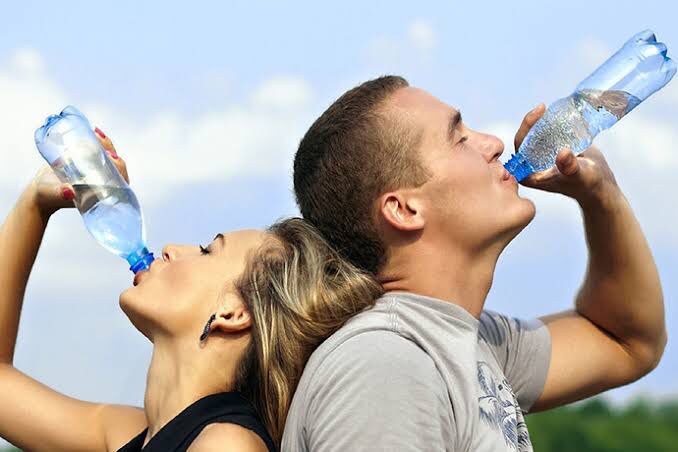This content is for informational and educational purposes only. Always consult a qualified healthcare provider.
Yes, staying hydrated is important, and you probably know that already. But, now there’s something a lot of people don’t know, which is exercise hydration, which is how much water you REALLY need when you’re working out. This question is quite common, and the answer isn’t always straightforward. Because it depends on some things, such as:
1 . The intensity and duration of the exercise: The more intense and longer the workouts, the more water you’d need to drink.
2 . The climate and environment you’re in: Hot and muggy places make people lose fluids, and this can influence a person’s exercise hydration level.
3 . How much you normally sweat: If you tend to sweat a lot, drinking more water during exercise may be necessary.
📋 Table of Contents
What Makes Hydration Important
During an exercise session, your body loses more fluid through sweat. This can cause you to get dehydrated, and it can affect your performance. Even mild dehydration is bad because it can cause extreme tiredness, reduced endurance, and increased heart rate. Severe dehydration, on the other hand, can lead to heart stroke, a lethal health condition. This is why everyone needs to practice proper hydration, and even exercise hydration, to avoid painful stories later. Proper hydration regulates the body temperature, transports nutrients, and keeps your muscles working well.
So, always drink enough water to stay alive and well.
Smart Ways To Practice Exercise Hydration
There are simple steps you can take to stay hydrated during your fitness routine.
1 . Pre-hydrate: It’s one very helpful way to stay hydrated. Just drink water in the hours leading up to your workout. Endeavor to drink 17-20 ounces of water (about 500 to 600ml) hours before you start exercising.
2 . Hydrate during exercise: For this part, personal requirements come in. PMC recommends drinking about 200 to 300ml of water every 10 to 20 minutes during exercise. However, you should still make adjustments based on how much you sweat and the intensity of your workouts. For workouts longer than an hour, try to take sports drinks with electrolytes to replace the fluids lost in your body.
3 . Post-hydrate: After you’re done exercising, still replenish your body with water. Drink enough water to replace what you’ve lost through sweat. A simple trick you can try to gauge this is to weigh yourself before and after exercise. For every pound of weight lost, drink about 470 to 700 ml of water.
Effective Tips for Exercise Hydration
1. Listen to your body by paying attention to signs of thirst. Thirst is your body’s way of telling you you’re somewhat dehydrated and need to drink some water ASAP. It’s best not to wait until you’re thirsty to drink water.
2. Think about the state of the weather. If you’re in hot and humid conditions, you’ll sweat more, so increase your water intake.
3. Choose the right drink because water is usually sufficient for workouts that last for an hour or less. But in the case of longer and more intense workouts, sports drinks can help replace electrolytes like potassium and sodium.
4. Keep tabs on your urine. The color of your urine says a lot, and it can indicate your hydration levels. If your urine is pale yellow, it generally means you’re well hydrated. But dark yellow urine may mean you need to drink more water.
5. Don’t go over the top by drinking too much water. While it’s true that dehydration is not a good thing, overhydration can also be dangerous. Although it’s rare, it can still happen to you if you drink excessive amounts of water without replacing electrolytes. It’s much worse when this happens during intense training or endurance training.
And one more thing, drinking water close to physical activities may cause you to feel some pain in your tummy, usually around the side. Although this doesn’t last for too long, and may subside after some minutes, if you wait and relax. That said, you can reduce the chances of this happening by drinking water slowly, in moderate amounts, and avoiding cold water; instead, go for room temperature water.

